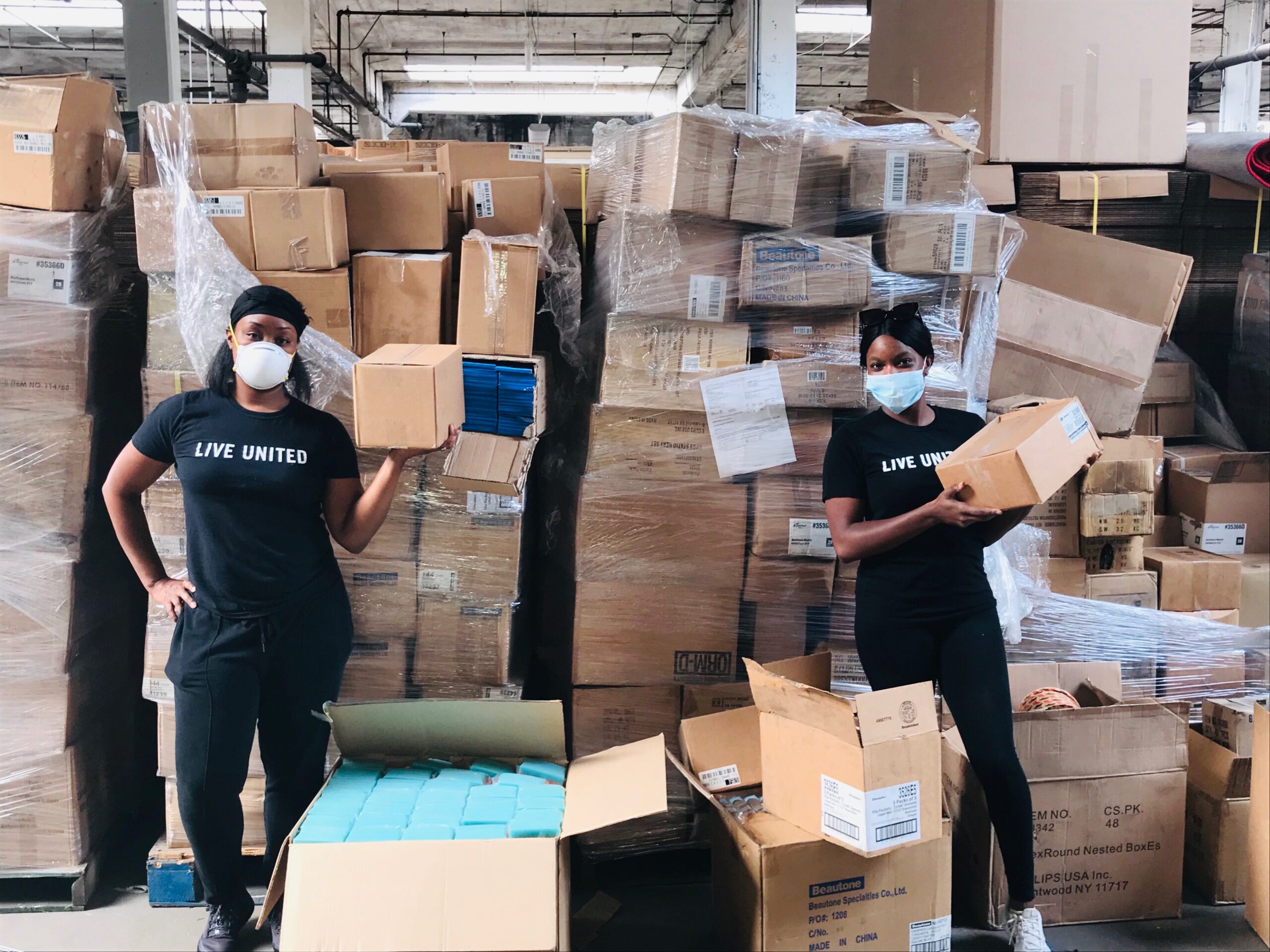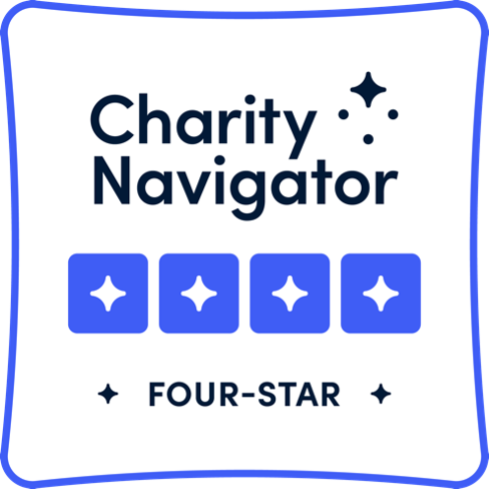This article was originally published in PEAK Grantmaking Journal: Learn, Share, Evolve and was written by Lita Ugarte Pardi, the knowledge and learning director at PEAK Grantmaking.
Did you know that there are more than 1,000 community foundations and 1,800 United Way affiliates in the US alone? Chances are you have personally engaged with at least one of these organizations, and perhaps your home institution has partnered with one in the past. The growth and evolution of these two organizational structures is significant, especially when one considers the level of community support they provide and the philanthropic capital that flows through each. It’s important to note that these organizations all operate independently but, in recent years, community foundations and United Ways across the country have been exploring more collaborative ways of operating to better meet the tremendous needs in communities.
Here, we highlight two stories of evolution — at United Way of Greater Atlanta and Pinellas Community Foundation — that we hope will inspire change, both inside your organization and through partnership with locally-grounded organizations.
United Way of Greater Atlanta (UWGA) was founded in 1905 and for many years focused on partnering with corporations in their workplace giving campaigns to raise funds to address community needs. UWGA’s child well-being index, developed in 2017, collects data on 16 measures related to factors that help account for the wide disparity in child well-being in the Atlanta region. Measures are tracked and analyzed by race and zip code, which means UWGA now has real-time data pointing to where conditions are improving or worsening and where funding is most needed. United Way developed the Child Well-Being Index as a diagnostic tool to tell them where each neighborhood stands in their progress toward saying, “all the children are well.” They use index insights as a compass to collectively — with nonprofit, business, philanthropic, and government partners — direct resources in ways that can most powerfully improve lives. Given the tremendous needs across their service area, it became clear they couldn’t go it alone. UWGA’s staff was just putting their plans in motion when the events of 2020 put them on a fast track to operationalize partnerships with government and philanthropic partners in new ways.
A partnership with the Community Foundation for Greater Atlanta to administer the region’s philanthropic response to the COVID-19 pandemic in 2020 provided UWGA an opportunity to test a new grants management system and different ways of working internally by fully empowering grantmaking staff with expertise to make funding recommendations. Later that same year, the launch of their United for Racial Equity and Healing Fund served as a safe learning space for UWGA to center racial equity in its grantmaking and learn about how they could apply a racial equity lens across their grantmaking, something UWGA had never done. The philanthropic capital raised specifically for the effort funded Black-, Indigenous-, and people-of-color-led organizations in metro Atlanta that support power-building and community organizing for racial equity and healing, an area UWGA had never before funded given their focus on human services. This fund provided UWGA another opportunity to test and further refine their new approach to grantmaking and to demonstrate to nonprofits, the community, government agencies, and philanthropic organizations that they were no longer the same United Way everyone had known for decades.
These two grantmaking efforts opened UWGA up to be a partner of choice for numerous state and local government agencies. The new partnerships have given them the opportunity to showcase the depth of their content knowledge and extensive experience in grantmaking and grants management. Many of the partners were brought in by relationships UWGA staff have in the community, while others were initiated by external entities that had witnessed UWGA’s evolution. Since 2020, UWGA has established partnerships with 10 public sector partners and been a part of 5 funder collaboratives, putting them in the driver’s seat for the allocation of more than $75 million.
Founded in 1969, Pinellas Community Foundation (PCF)was established to bridge the gap in the availability of social services to the Black community that stem from Florida’s history of segregation. Donors establish donor-advised funds and recommend grants out of those funds, and there is a modest discretionary pool of funds managed by the foundation’s board and staff. Given their focus on geographic communities at the city, county, region, and state levels, community foundations have a history of connecting with local elected officials and government leaders to ensure there is a certain level of familiarity with the work of the foundation. Relationships with county commissioners and leaders of government agencies played a big role in PCF stepping outside the role it had traditionally played in the communities surrounding Clearwater and St. Petersburg.
PCF’s recent evolution stemmed from the federal government’s investment in communities due to theCOVID-19 pandemic. In July 2020, Pinellas County received $180 million from the Coronavirus Aid, Relief, and Economic Security (CARES) Act, which had to be spent by the end of the year. The county wanted to allocate a portion of that funding to food, behavioral health services, and legal aid to prevent residents from being evicted. Given the speed at which they needed to move, and knowing that PCF had deep relationships within the community, the county turned to the community foundation. PCF quickly moved forward, motivated by the opportunity to impact their community at a scale they’d never had the chance to previously.
Over the course of four months, PCF awarded $18 million to nearly 70 organizations, a process that required the organization to rapidly grow its grantmaking staff from a single grants manager to a team of four. Developing processes and systems to administer such a sum was a next-level effort that required speed and agility to refine internal communication norms. Project management tool shave supported the team as they developed processes and learned how to work most effectively as a team. Since that first CARES Act funding partnership, PCF has engaged in at least three more partnerships with local government agencies. Though PCF staff don’t drive the funding recommendations, their role as administrators and their ability to support nonprofit partners has resulted in more than $25 million flowing to community-based organizations, with investments ranging from support for major capital projects to the establishment of mental health hubs.
Embedding equitable practices in government-funded grantmaking efforts
Both UWGA and PCF implemented equitable grantmaking practices from PEAK’s Principles prior to launching these partnerships, including building the capacity of nonprofit partners, investing in small and grassroots organizations, and awarding multiyear operating grants when possible. Both organizations share these Principles-based practices with potential philanthropic partners and talk through the opportunities to align the project with our Principles before beginning to administer funds. Though both organizations must consult with their partners on grantmaking parameters, through conversation and negotiation, they have both been able to imbue their grantmaking processes with equitable practices.
Support beyond the check.
Both organizations also offer support beyond the check, which has been impactful. Responsive, adaptive, non-monetary support bolsters leadership, capacity, and organizational health. UWGA has partnered with Network for Good for several years and is now also working with Resilia to make their programming available to nonprofit partners. Investing in these capacity building resources, they have introduced their government partners to the idea that funders should provide support beyond the financial transaction of a grant or contract.
Narrowing the power gap.
Another way to build nonprofit capacity is to partner with each nonprofit as they prepare their grant application and, once they become a grantee, to support them in navigating systems and processes. PCF worked with nonprofits to address areas where their applications could be strengthened or identify invoice issues that would hold up a reimbursement.
Government contracts typically operate on a reimbursement basis, making it challenging for some nonprofits — especially smaller ones — to successfully scale any efforts given cash flow constraints. PCF’s commitment to ensuring small nonprofit organizations had access to CARES Act funding led to the establishment of a working capital loan fund with a private foundation through which nonprofits that received CARES Act funding could get an interest-free, default-proof loan. This allowed grantees to spend money to do the work, be reimbursed for their expenses, and then pay back the loan. This creative approach yielded no loan defaults and a loan fund that is still active today.
Evolving grant reports.
While PCF’s staff would have liked to trim down the application, they persisted in looking for ways to eliminate unnecessary steps. When one of their partners did not mention the need for written reports, PCF staff proceeded with oral reporting. To ensure PCF gathered the data points they knew were needed, PCF staff met one-on-one with grantees and reviewed the proposed outcomes from the application to identify the questions they’d discuss when they next met. Staff captured what the grantee did and invited them to edit the report before submitting it to their partner.
Emergent learning in action
Emergent learning is a philosophy and practice that values maintaining communal spaces where people and organizations can learn, implement what they’ve learned, explore, and make mistakes, continuing to iterate as needed. To successfully embody this practice, individuals and organizations must shift their mindset and approaches to each situation. Essential qualities of the emergent learning philosophy are curiosity, transparency, diversity, vulnerability, and collaboration. Being an emergent learner requires intention and yields many positive outcomes when done well. Both UWGA and PCF staff shared how embracing qualities of emergent learning have resulted in enhanced relationships with their nonprofit partners. Here are a few of their key takeaways.
Having clear expectations and effective communications channels with government partners has been critical.
When launching a new grant partnership, understanding what the partner expects, and negotiating those expectations, set the stage for a smooth relationship. UWGA found it important to allocate time before launching a process to agree to the data points that were needed to justify grant decisions, as that would keep staff from having to scramble at the last minute when requests for additional specificity came in.
Equally important is having clarity on the chain of command and ensuring those with decision-making power have access to the information they need to move forward. The first county commission meeting where PCF presented organizations to consider for ARPA funds highlighted the fact that some important details regarding these organizations had not been shared with commissioners. Ensuring the right information got to those who needed it resulted in greater trust in the recommendations.
Support smooth transitions by providing staff ample time and space to acclimate to and manage process changes and role shifts.
Many of UWGA’s staff have over10 years of experience using a different model of grantmaking. While change can be exciting for some, it was important not to rush implementation and assume that everyone was supportive or understood how to operate differently. Professional development for the grantmaking staff ensured everyone was ready for the changes.
Building trust and doing homework as a funder is key for a new grantmaking approach to be successful.
When entering a new arena, as UWGA did when they launched the Racial Equity and Healing Fund, it’s important to find ways to work with other funders or intermediaries to deepen your understanding of organizations and issues. UWGA had historically funded human service organizations — and not ones focused on movement building. One of the fund’s guiding principles was that, to get to systems-level changes, they needed to invest in a mixture of organizations that deliver programs and services, utilize community organizing as a tool to inform, shape and drive change with the voices of those closest to the problem, and advocate for policy changes at the local and state level.
Significant changes require support and leadership from the top.
UWGA’s executive leaders and board members were very supportive of the new grantmaking approach. Board members understood the implications of the changes and connected with philanthropic leaders in the community to champion the organization’s evolution. At PCF, staff presented the various government partnerships just as they would have any other philanthropic partnership — an opportunity to do more for the community they served. Thinking of the funds as public philanthropy and the government agencies as public donors helped board members work through questions and realize the work fell within the organization’s mission.





